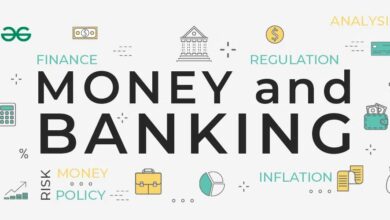AI Is Reshaping Banking Operations in 2025
Contents
- 1 Introduction
- 2 Table of Contents
- 3 1. The Rise of AI in Banking
- 4 2. Key AI Technologies Driving Change
- 5 3. Applications of AI in Banking
- 6 4. Benefits of AI in Banking
- 7 5. Challenges and Ethical Considerations
- 8 6. AI and Cybersecurity in Banking
- 9 7. Future Trends of AI in Banking
- 10 8. Conclusion
- 11 9. Frequently Asked Questions (FAQs)
Introduction
Artificial Intelligence (AI) is no longer a futuristic concept but a central pillar in the evolution of global banking operations. As of 2025, the integration of AI technologies has significantly transformed how banks operate, engage with customers, manage risk, and ensure compliance. From automating routine tasks to enhancing cybersecurity and personalizing financial services, AI is revolutionizing the entire banking ecosystem.
This comprehensive article explores how AI is reshaping banking operations in 2025, aligned with the latest SEO practices, Google AdSense policies, and Google Search Console guidelines. It offers deep insights into the trends, applications, benefits, challenges, and the future of AI in banking.
Table of Contents
- The Rise of AI in Banking
- Key AI Technologies Driving Change
- Applications of AI in Banking
- Customer Service
- Fraud Detection and Risk Management
- Credit Scoring and Loan Underwriting
- Wealth Management and Robo-Advisors
- Compliance and Regulatory Reporting
- Benefits of AI in Banking
- Challenges and Ethical Considerations
- AI and Cybersecurity in Banking
- Future Trends of AI in Banking
- Conclusion
- Frequently Asked Questions (FAQs)
1. The Rise of AI in Banking
The adoption of AI in banking has accelerated due to advances in machine learning, big data analytics, natural language processing (NLP), and robotic process automation (RPA). According to a 2025 report by Deloitte, over 85% of global banks have integrated at least one AI-based solution into their core operations.
Factors Driving AI Adoption:
- Increased demand for personalized banking experiences
- Growing volumes of data and digital transactions
- Pressure to reduce operational costs
- Rising cyber threats and regulatory requirements
2. Key AI Technologies Driving Change
AI encompasses several subfields that contribute uniquely to banking operations.
| Technology | Description | Application in Banking |
|---|---|---|
| Machine Learning | Algorithms that learn from data | Credit scoring, fraud detection |
| NLP | Enables machines to understand human language | Chatbots, virtual assistants |
| RPA | Automates repetitive tasks | KYC, compliance, data entry |
| Predictive Analytics | Forecasts future trends | Market analysis, risk management |
| Computer Vision | Interprets visual data | ID verification, ATM surveillance |
3. Applications of AI in Banking
Customer Service
AI-powered chatbots and virtual assistants are transforming customer service by providing 24/7 support, resolving queries, and offering tailored financial advice.
Key Benefits:
- Reduced response time
- Enhanced customer engagement
- Cost-effective service delivery
Popular AI Chatbots in 2025:
- Erica (Bank of America)
- EVA (HDFC Bank)
- Cora (NatWest)
Fraud Detection and Risk Management
AI algorithms detect anomalies in real-time, preventing fraudulent activities before they escalate.
Features:
- Transaction pattern recognition
- Behavioral biometrics
- Real-time alerts
Credit Scoring and Loan Underwriting
AI evaluates creditworthiness using alternative data like utility payments, rental history, and social media behavior.
Advantages:
- Inclusive credit access
- Reduced bias
- Faster loan approvals
Wealth Management and Robo-Advisors
Robo-advisors provide algorithm-driven investment advice tailored to individual financial goals.
Key Tools:
- Portfolio rebalancing
- Risk profiling
- Tax optimization
Compliance and Regulatory Reporting
AI automates compliance checks, monitors transactions for suspicious activity, and generates audit trails.
Benefits:
- Reduced human error
- Cost savings
- Enhanced accuracy
4. Benefits of AI in Banking
| Benefit | Description |
|---|---|
| Operational Efficiency | Automates tasks, reducing manual labor |
| Enhanced Decision-Making | Data-driven insights improve strategic planning |
| Improved Customer Experience | Personalized services foster loyalty |
| Risk Mitigation | Real-time threat detection and prevention |
| Competitive Advantage | Early adopters lead in innovation and market share |
5. Challenges and Ethical Considerations
Despite its benefits, AI poses several challenges.
Challenges:
- Data privacy concerns
- Algorithmic bias
- Integration complexity
- High implementation costs
Ethical Considerations:
- Transparent AI systems
- Human oversight
- Fair lending practices
6. AI and Cybersecurity in Banking
AI enhances cybersecurity by detecting anomalies, predicting potential attacks, and automating incident response.
AI-Based Cybersecurity Features:
- AI-driven firewalls
- Adaptive authentication
- User behavior analytics
Case Study:
JPMorgan Chase uses AI to monitor over 250,000 endpoints, detecting potential threats in real time.
7. Future Trends of AI in Banking
Emerging Trends:
- Explainable AI (XAI)
- AI-powered blockchain solutions
- Hyper-personalization
- Voice-activated banking
Investment Outlook:
Financial institutions are expected to spend over $50 billion annually on AI technologies by 2030.
8. Conclusion
AI is fundamentally reshaping the banking landscape in 2025. From enhancing customer interactions to optimizing back-end operations, AI technologies offer immense opportunities for innovation, growth, and risk management. Banks that embrace AI today are better positioned to meet the evolving demands of tomorrow’s digital-first consumers.
To maintain competitive advantage and compliance, it’s critical for financial institutions to balance AI adoption with ethical considerations, regulatory standards, and continuous innovation.
9. Frequently Asked Questions (FAQs)
Q1. What are the top AI applications in banking for 2025?
Chatbots, fraud detection systems, robo-advisors, credit scoring tools, and compliance automation are the top AI applications in banking.
Q2. How does AI improve customer experience in banking?
AI provides personalized recommendations, faster query resolution, and round-the-clock support, enhancing the overall customer journey.
Q3. Is AI safe for use in banking operations?
Yes, when implemented with proper governance and cybersecurity measures, AI is safe and can even enhance security.
Q4. Can AI replace human jobs in banking?
AI automates routine tasks but also creates new roles in AI management, data science, and compliance oversight.
Q5. How can banks prepare for AI implementation?
Banks should invest in talent, infrastructure, ethical AI frameworks, and collaborate with tech partners for effective AI integration.





